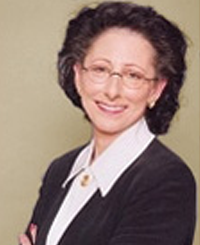4th (NON-FINANCIAL) TIP TO SAVING THE FAMILY FORTUNE
One of my favorite television shows is “Cash in the Attic”. On the show, an antiques expert goes to people\’s houses and searches for treasures and then takes them to auction for them. A lot of the stuff is from garage sales and flea markets, others are actual antiques – inherited pieces. Sadly, many times the family members have no idea where an item came from or the story behind it.
Today they found an antique writing slope with a sock in it. The daughter remembered that the slope had belonged to her mother and that she kept important things in it. When they opened it, they found an old sock among the papers, pens and ink. Everyone laughed and threw the sock away but I\’m still thinking about it! Why was this old sock in this box? Was it just an old sock that escaped from the dryer or was it from an old lover? Had she only knitted one sock before being told that her husband had died in the war? Was she saving it in case she had to set an elfin house servant free? What was the story? Unfortunately, we\’ll never know!
During the past few months we\’ve been looking at how to save the family fortune. We started by looking at “What\’s Important to Me” to determine how each person interprets “family fortune”. Then we looked at rules for how you will treat each other and what to do if two or more siblings want the same item to save the family relationship.
In this column we\’re going to look at how to save the family history and stories and the best way to do this is by talking. Not just idle chit-chat but really good, 2-way communication as in, while one person is talking, the other is listening and each gets a chance to do both.
But good communication is often the most difficult thing for families to do. There are a lot of reasons for this but most often, it\’s because of the lack of time – or, more accurately, because we don\’t make the time. If you\’re like most families these days, you, Mom, Dad and your siblings are spread out all over the country. Unfortunately, good communication is especially difficult when communicating long distance because it\’s so easy to let time and distance make communication superficial. Without consciously asking about family history, a person may have a dim or distorted vision of the past. Sharing stories and meanings about significant belongings helps preserve family history, memories, and traditions.
The easiest way to open the lines of communication is to find a way to focus on a memory; (for example, I walk almost every morning in Central Park and most mornings my walk takes me across a wooden bridge. I love the sound of my footsteps because it reminds me of an old wooden dock at a lake where we used to swim when I was a little girl); an activity or hobby (such as cooking, antique cars, cleaning the attic or garage, etc); and/or an object (such as pictures, nick-nacks – an old sock!)
So the next time you and your aging loved one talk – whether by phone or in person – share some really good communication. Not only will it preserve family memories, history, & traditions, it will happen while it\’s a joyful, happy experience.
While you\’re at it, take pictures (“for insurance purposes”) and discuss as you go or suggest video or audio taping the stories for other family members. Or, since not everyone is good at verbalizing why something is important to them, suggesting your parents write the family story using possessions to get them started.
Remember – the more you talk – more there is to talk about.
And the easier it is to talk about the fun stuff – the easier it will be to talk about the hard issues.
© Copyright AgeWiseLiving® 2009 You can find information about how to talk with your aging loved ones in “The Ultimate Caregiver\’s Survival Guide”: the step by step blueprint to resolving your Eldercare issues by choice, not crisis. While there, check out AgeWiseLiving® seminars and free teleseminars, and to sign up for Barbara\’s free monthly newsletter at





